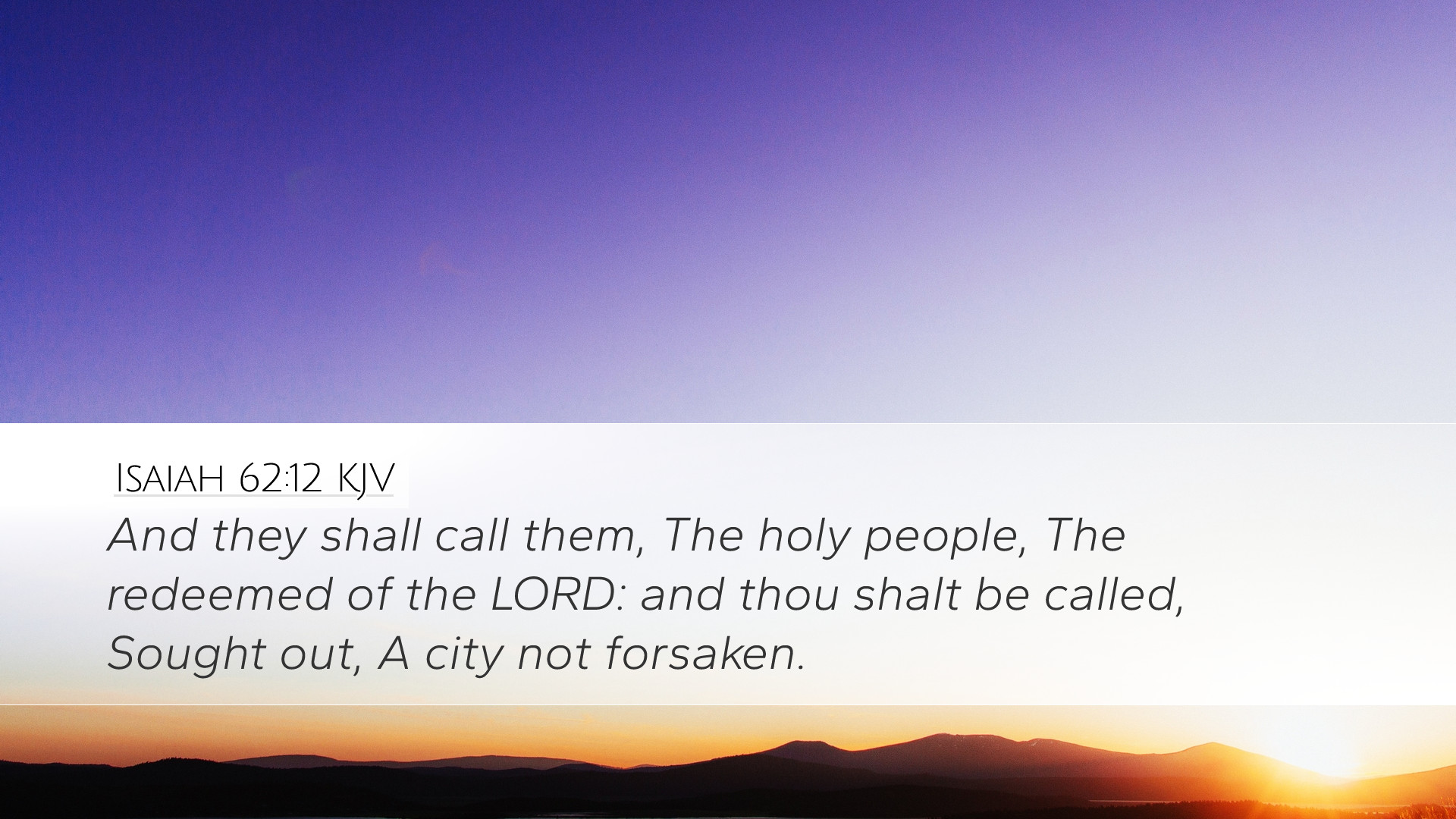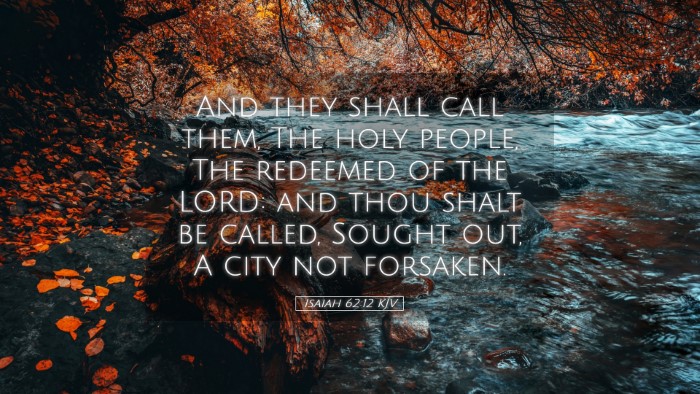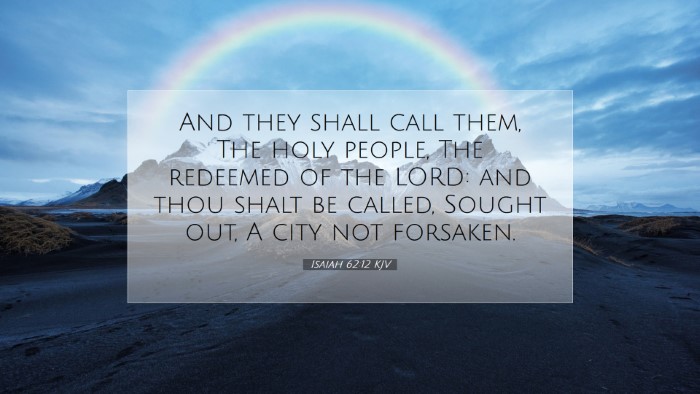Commentary on Isaiah 62:12
Bible Verse: “And they shall call them, The holy people, The redeemed of the LORD: and thou shalt be called, Sought out, A city not forsaken.” - Isaiah 62:12
Introduction
This verse from the book of Isaiah encapsulates a profound message about identity, redemption, and divine favor. It speaks to the nature of God's people and their relationship with Him, highlighting themes of holiness, redemption, and hope. Various public domain commentaries offer rich insights that deepen our understanding of this text.
Contextual Background
Before delving into the verse itself, it's essential to consider the context in which it appears. Isaiah prophesied during a tumultuous time in Israel's history, marked by sin, judgment, and eventual restoration. Chapters 60-62 depict a future of hope and glory for Zion, emphasizing the restoration of Israel and the coming of salvation.
Insights from Commentaries
1. Matthew Henry's Commentary
Matthew Henry draws attention to the transformation of God's people, who once were in a state of disgrace. He notes that the designation of "The holy people" signifies a profound change in their status. This holiness is not an inherent trait but a result of God's redeeming grace.
- Holy People: The term represents the consecration of the people to God, emphasizing the call to live in accordance with His righteousness.
- Redeemed of the LORD: This underscores the act of God in purchasing and liberating His people from sin and judgment. Redemption signifies a restoration to favor and fellowship with God.
2. Albert Barnes' Notes on the Bible
Albert Barnes offers an elaborate view of the implications of being called "The redeemed of the LORD." He emphasizes that this title not only indicates their status but also reflects their mission and purpose as witnesses to God's faithfulness and power.
- Testimony of Status: The redeemed are a testament to God’s grace, showcasing His ability to transform lives from captivity to freedom.
- Purpose of Being Sought Out: The phrase “thou shalt be called, Sought out” suggests a longing in the hearts of others to come to God’s people, attracted by their witness and the evident blessings of God upon them.
3. Adam Clarke's Commentary
Adam Clarke elaborates on the significance of the phrase "A city not forsaken." He points out that this denotes not only a geographical location but also a spiritual condition of security and divine oversight.
- Contrast of Forsakenness: Clarke relates this to the previous judgments Israel faced due to disobedience. The promise of not being forsaken highlights the restoration of God’s presence among His people.
- Symbol of the City: The city represents the community of believers. Its security and sanctity stand as a beacon for others, illustrating the transformative presence of God.
Theological Implications
The rich tapestry of meaning in Isaiah 62:12 imparts several significant theological implications:
- Identity in Christ: Just as the Israelites were called "holy" and "redeemed," believers today find their identity in Christ, who has made them a chosen people (1 Peter 2:9).
- God's Unchanging Love: The declaration that they are not forsaken speaks to the enduring love of God, which transcends human failures and offers hope for restoration.
- Mission of Proclamation: The redeemed are called to be witnesses, sharing the hope and transformation found in God’s grace, thus fulfilling the missional aspect of their identity.
Application for Today
This scripture has meaningful applications for believers today. Understanding our identity as “holy people” and “redeemed of the LORD” encourages us to live lives that honor God and reflect His character.
- Live as a Witness: Believers are challenged to embody the holiness and redemption they have received, serving as living testimonies of God’s grace.
- Seek God’s Presence: Recognizing the promise of no forsakenness calls us to cultivate a deeper relationship with God, relying on His presence and guidance in our lives.
- Community Reflection: The church, as a collective body, should strive to reflect the characteristics of a city that is sought after, drawing others to the hope of the gospel.
Conclusion
Isaiah 62:12 encapsulates God’s redemptive plan and the identity of His people. Through the insights gleaned from various commentaries, we see a picture of transformation, purpose, and divine stewardship that resonates with the church today. Understanding our status as God's holy people challenges us to live out our faith in ways that honor our calling and reflect the glory of the One who has redeemed us.


